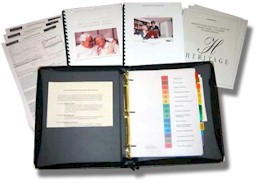Conservatorship...Why It Is So Important
There is an issue lurking in our futures that can profoundly effect each one of us. It’s called Conservatorship. Conservatorship happens when we are no longer able to care for or make responsible decisions for ourselves. This could be due to a serious accident or illness that effects our reasoning powers...or it might be caused by Dementia or Alzheimer’s Disease causing us to depend on another person for our care. In other words, we are no longer legally competent to be responsible for ourselves.
The process of Conservatorship is a legal one that must be decided by a Conservatorship Court. A judge reviews your case and considers all the petitions for your care and makes a decision on who will take care of you and be in charge, in most cases, of your money. This is the process even if you are married. Your spouse does not necessarily get automatic conservatorship. In fact, anyone can petition the court to be your “Conservator of the person”.
When this decision has not been made by you in advance by nominating who you want to be your Conservator, it is left up to the court to make that decision. All things are considered and even if your spouse does get custody of your care they still have to make financial accountings to the court on how your spouse spent money for your care and they are accountable to the court until you die.
This decision should not be put off. In making the decision regarding your Conservator you should consider carefully who you believe will attend to your care with the greatest love and consideration for your comfort...they are, after all, in charge of you. They will decide if you go into a residence or assisted care facility or stay at home. They will decide and be responsible for facilitating your medical care. They will, in most cases, be in charge of your money and how it is spent for your care.
Life presents situations that don’t necessarily bode well for you if they are not considered carefully in advance. Remember that people, dare I say, family members, become very concerned about how much of your money they will get when you die. Sorry folks, I see it every day and it often happens in the happiest of families. Situations where there are previous spouses and perhaps children by those previous marriages, family abuse of the elderly, discord with the present spouse, disagreements and bitterness between children and children of former spouses...all these can come into play in a profound way and at a time when you are powerless to do anything about it unless you have planned in advance.
Fortunately there is something you can do. Preparing a Living Trust and nominating a Conservator for yourself in advance of the need for one can solve the entire problem. Pick the most loving person you know who would be willing to serve in that capacity. In most cases it is a loving spouse. In many cases it is a grown child or children. Mine is my three daughters whom I adore...after my wonderful wife is unable to serve.
If you have not attended to this important matter I urge you to take action for your sake and for the sake of your family. Contact Heritage at 888-437-8778. You can read more on this subject by going to the Conservatorhip section of the Heritage website at www.heritagelivingtrust.com
Until Next Time...
 Post a Comment → Posted on
Post a Comment → Posted on  Wednesday, July 16, 2014 at 07:31PM
Wednesday, July 16, 2014 at 07:31PM 
